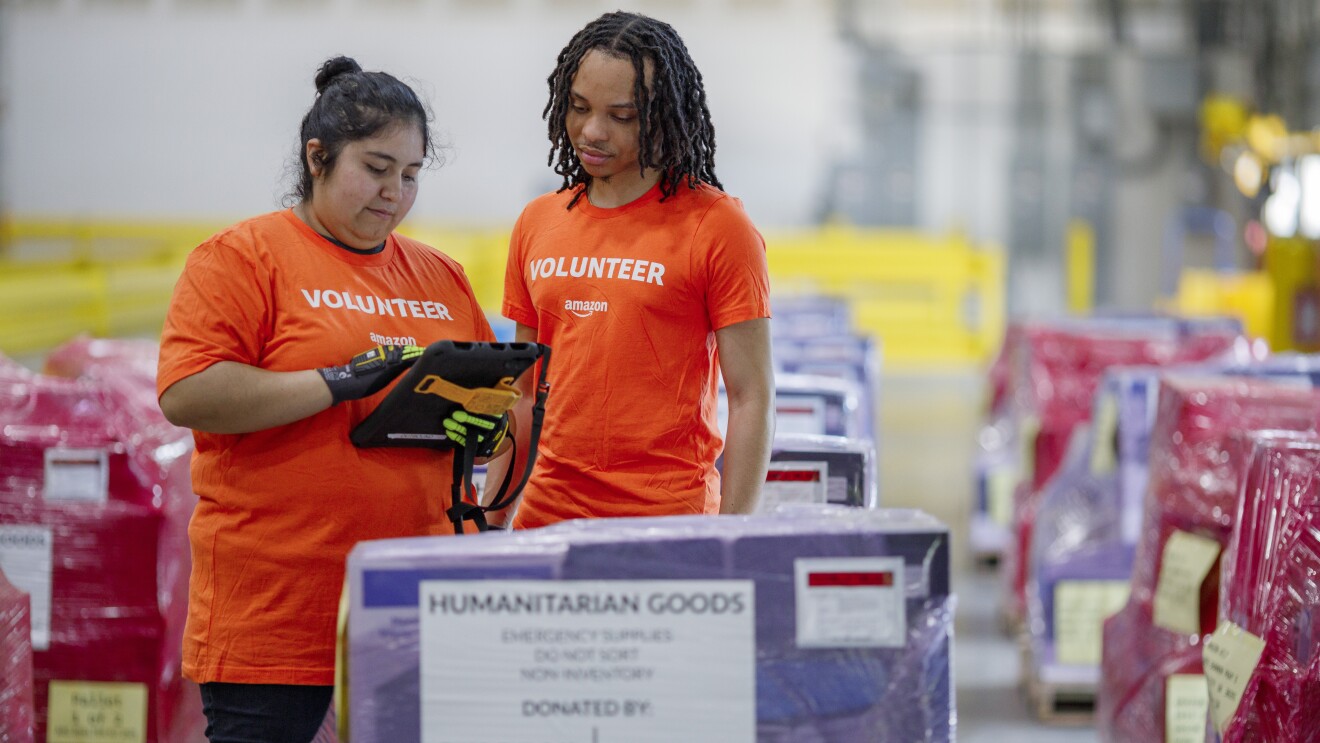It might seem obvious: a kid who starts their day with a nutritious breakfast is more likely to succeed in class.
But why? How, exactly, does oatmeal or an omelet fuel a young person’s attitude and attendance, their health and curiosity, their ability to focus and learn? What’s the science behind that equation?
As part of Amazon’s Rise & Smile initiative — which is providing millions of meals to hungry students across the US, in partnership with the hunger-relief nonprofit No Kid Hungry — we reached out to a few experts to ask them to add some data to the question, "Why does breakfast matter?"

Mandy Manning is a high school teacher in Spokane, Washington, who, in May, received the annual National Teacher of the Year award. Manning teaches immigrant and refugee students at Joel E. Ferris High School’s Newcomer Center, where she regularly observes the link between eating and learning.
“This is such a huge issue right now – it’ a growing problem,” said Manning, who will visit Amazon’s Seattle campus on Nov. 26 to discuss hunger issues with award-winning Seattle chef Edouardo Jordan. “It's something we see in the classroom every day, at all levels - even community college and college.”
When Manning’s students are hungry — a common problem with kids from recently-immigrated families, particularly those with a single parent — food becomes the entire focus of their brain.
“If you don't have the nutrients for your body, it affects the whole process,” she said. “You're just thinking about getting food in your body. It becomes this all-consuming thing, this obsession on what's your next meal? Your body goes into hibernation. And your brain doesn't function if it doesn't have nutrition."
Manning has seen students who come to school having had little to no food since they left school the day before.
If a kid hasn’t eaten for 12 hours or more their body enters "fasting mode,” said Carolyn Wait, a senior manager and a registered dietitian with No Kid Hungry’s Center for Best Practices. “Your metabolism slows down. Your blood sugar may be low. You’re just not ready to start the day."
Those meals ensure that kids can reach their potential during the school day.
Mandy Manning, high school teacher
Inside the body, according to Wait, hunger looks like this: glucose, which comes from the breakdown of the food we eat, fuels the body and the brain. If there’s not enough fuel coming in overnight while we sleep, the liver breaks down its energy stores. By morning, energy stores and blood glucose levels have declined, which can cause headaches. An empty stomach in the morning triggers hormones that cause the stomach to start pumping out acid in anticipation of a meal. Without food to digest, your stomach starts grumbling and hurting.
For younger kids, they might not even realize they're hungry, they just know they don't feel great. "Children who eat breakfast are more focused. They're less likely to have those headaches and tummy aches that send them to the nurse's office," Wait said.
In an interview No Kid Hungry conducted with high school students, teens described the pain that comes with real hunger, and the impact it has on their studies.
“I know for a fact, my focus is different when I am hungry,” one student said. “That homework assignment is going out the window if I’m hungry.”
A report conducted by Deloitte and No Kid Hungry's Center for Best Practices found that students who eat school breakfast score higher on standardized math tests and are more likely to graduate from high school. Other studies have found that hunger affects absenteeism and tardiness, and that kids who have access to breakfast in school miss fewer days of school.

Manning said that in her classroom in Spokane, she’s seen breakfast lead to “dramatic impacts on attention, and just being able to sustain that focus in class."
That link between school breakfast, better test scores, and higher graduation rates is one reason Amazon partnered with Share Our Strength to launch the multi-year Rise & Smile initiative that will provide grants to schools across the US to help them deliver millions of meals to hungry students.
One challenge Manning has seen, however, is that some kids are afraid or embarrassed to ask for food, for fear of being ostracized by their peers.
"That's why in-school breakfasts and lunches are so, so important. Because they allow every kid to get breakfast, so they don't feel out of place," said Manning. “Those meals ensure that kids can reach their potential during the school day."
Video courtesy of No Kid Hungry







